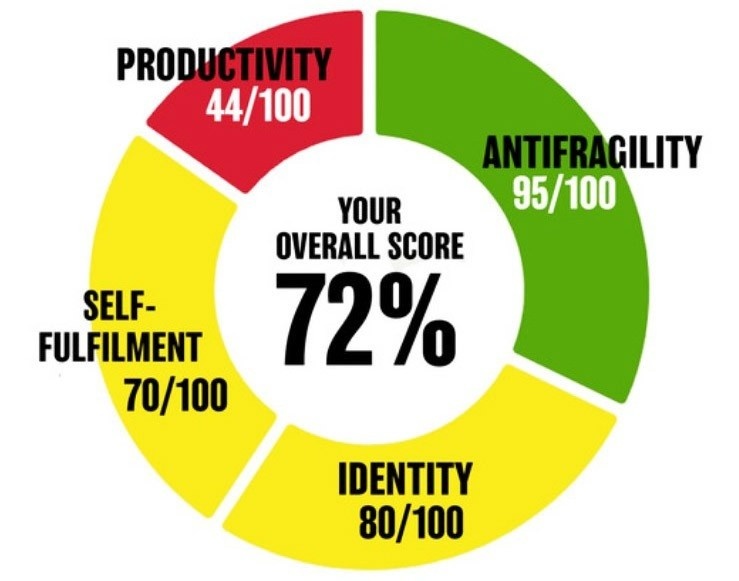SUMMARY
- Your approach to learning does not work. You’re taking way too long to learn all of the valuable skills that you need. Today I’m going to teach you 10 tips to learn all those valuable skills that you need a lot faster.
- The first is to respect one of my favorite rules, the 80/20 principle. It simply states that 20% of causes create 80% of the effects.
- Number two: Get into the habit of quizzing yourself. It’s much more powerful than simply taking notes. So what that means is you get to the end of a chapter and before you immediately move on to the next chapter, just pause, pause for a moment and ask yourself, “What did I just learn? What were some of the core concepts, the core principles?”
- The number three way that you can learn things much faster is to get into the habit of teaching or sharing what you learn. When we teach or share what we’ve learned with someone else we more deeply embed that learning within us.
- Number four: Quit bad material, or quit things that aren’t helping your learning. And I’ll go back to the example of a book again. You don’t simply need to complete the book because you started it.
- Number five is a concept called spaced repetition. Spaced repetition is presenting what you’ve learned back to yourself in spaced intervals, with each interval increasing over time, because as you’re learning the information, you don’t need to refer back to it as much.
- Number six: To learn faster you need to actually schedule learning into your day and week.
- Number seven is taking advantage of the micro moments throughout your day. There’s times where we’re commuting or moving from one activity to the next or exercising, and those are all learning opportunities.
- Number eight is to put some pressure on yourself, and you can do that in the form of looking for a certification or an official course that’s tied once again to whatever it is that you’re trying to learn. That kind of healthy pressure will force you to learn faster.
- Number nine, try learning in a group, with a group of other people, a group of friends, or a group of peers. Try not to learn on your own, but try to learn in a social setting.
- And the 10th way in which you can be learning faster is simply choose things that you would enjoy to learn. You’re not going to learn anything quickly if you hate whatever it is, or if you don’t truly want to learn it.
TRANSCRIPT
Your approach to learning does not work. You’re taking way too long to learn all of the valuable skills that you need. But today I’m going to teach you how to learn all those valuable skills that you need a lot faster.
Hi, my name is Eric Partaker, and I’m on a mission to help entrepreneurs reach their full potential in business and life. And stick around for today’s message because I’m going to be teaching you how you can learn things a lot faster.
So 10 tips that will help you learn things a lot faster. The first is to respect one of my favorite rules, the 80/20 principle. It simply states that 20% of causes create 80% of the effects. Or 20% of everything that you could learn out there could create 80% of the benefit in your business and life. The point being you can’t learn everything. You need to be selective with what you want to learn. So if you apply the 80/20 principle, what’s the 20% of things that you could learn that could create 80% of the benefit in your business in life, rather than what are all the things that you could be learning. Your time is finite. Your time is limited. Use it wisely. Go for the things that would deliver the biggest bang for the buck.
Number two, this is a great technique that I got from the book called Make It Stick: The Science of Successful Learning. And what they highly encourage you to do is when you’re, for example, reading something, get into the habit of quizzing yourself. It’s much more powerful than simply taking notes. So what that means is you get to the end of a chapter and before you immediately move on to the next chapter, just pause for a moment and ask yourself, “What did I just learn? What were some of the core concepts, the core principles?” Try to summarize it to yourself. Try to do that before you move on to the next chapter. And when you finish the book, try to do that self summary, that self quiz again. This has been scientifically proven to help you learn much more rapidly than simply taking notes.
The number three way that you can learn things much faster is to get into the habit of teaching or sharing what you learn. When we teach or share what we’ve learned with someone else we more deeply embed that learning within us. I mean, think about it. It’s one thing to read something and then put that book on a shelf, or watch a video course and kind of close down the laptop. It’s entirely another to put the book on the shelf or close the laptop and then have to teach, or at least share that, with someone else. Now, this doesn’t need to be a huge massive event. I’m not saying you need to become a professor and start teaching a lecture to a 1000 students. That’s not what I mean. It could just simply be in the evening at the dinner table, with your family, with your friends, with your roommates, with whomever. Teach and share what it was that you learned that day. And by doing that, you get a two for one, by the way, you more embed the knowledge in yourself and you’re also helping someone else.
Number four. This might not be a way that you would think to learn faster, but it is. Quit bad material, or quit things that aren’t helping your learning. And I’ll go back to the example of a book again. You don’t simply need to complete the book because you started it. Don’t continue. Similarly, if you’re taking a course, or if you’re researching a particular project or idea and if you’re not getting what you’re expecting from it, stop. You could be applying that time and effort to something else so that you could be learning faster. If you’re taking all of your time having to just tick the box of completing stuff, even stuff that isn’t serving you, you’re not going to be learning as quickly as you could if you’re focusing your time on the things that matter most.
Number five is a concept called spaced repetition. Now there’s loads of software programs out there or apps that you can download on your phone that can facilitate spaced repetition. Spaced repetition is presenting what you’ve learned back to yourself in spaced intervals, with each interval increasing over time, because as you’re learning the information, you don’t need to refer back to it as much. So for example, you’ve learned something, so maybe you want to be presented with that information again within two days, because you’ve only just learned it. But after getting that first kind of repetition, perhaps you only need to see it now four days later, and then eight days later, and then 16, and then 32, and so on, because with each presentation of the information back to you, it’s more deeply embedded. So there’s software out there that can allow you to input information and then present it back to you in increasingly long spaced intervals. And this is a tool, by the way, which also has been proven to help you learn more quickly, learn faster. I’ve used this, especially with regard to learning languages. So I speak a few languages and that’s largely been a result of my approach to learning those languages.
One of the languages that I speak is Brazilian Portuguese because my wife is Brazilian. And as I was learning that language, I used a space repetition app on my phone, which allowed me to input words and phrases, and it was sort of like a flashcard thing. So it would have the Portuguese on one side, and then the English on on the other side of the virtual card, so I could turn the phone around and it’s on the back, and the program would just present to me. I would do a session for example, and it would present to me all the words and phrases that I had learned some days prior, but it would rotate with decreasing frequency, the ones that I was getting right, that I didn’t need to learn anymore. It presented those to me less and less often, and focused my attention to the ones that I needed to spend my time on. So spaced repetition is a mechanism with which you can learn things a lot faster, and there’s tons of apps out there that can help you in that regard.
Number six, to learn faster you need to actually schedule learning into your day and week. A lot of times I meet people and they say, “Oh, there’s this thing or this skill that I want to develop and learn.” And well, I ask them, “Okay, well show me in your calendar where you built that learning into your schedule.” “Oh, well, I haven’t done that.” Well, of course you’re not going to learn anything. You need time to learn. And if it’s not scheduled in your calendar, it won’t happen. What gets scheduled gets done, and that applies to learning as well. So if you want to learn faster, make sure you’re scheduling that time in your calendar for the learning to actually happen.
Number seven is taking advantage of the micro moments throughout your day. There’s times where we’re commuting or moving from one activity to the next or exercising, and those are all learning opportunities. Again, going back to the language example, I would often use five, 10 minutes between a meeting or on a way to a new place just to pop my headphones in and listen, listen to content related to that language, listen to a story in that language, listen to new words or vocabulary. I was taking advantage of all that time. And I calculated, by just taking advantage of those small moments, moving in between meetings or traveling to a new destination, that I was racking up anywhere from 30 to 60 minutes a day of learning without actually having to create any extra time in my schedule. Just taking advantage of those micro moments throughout the day.
Number eight, if you really want to learn faster, put some pressure on yourself. You can do that in the form of looking for a certification or an official course that’s tied once again to whatever it is that you’re trying to learn. That kind of healthy pressure will force you to learn faster. If you have to complete an examination, if you have to qualify for a certification, if you have to graduate from a course, it will propel your learning, and suddenly something that perhaps might’ve taken years to achieve, or maybe never would have been achieved, can be achieved in a semester or in a space of a few months. So take a look and see if there’s something that you can tie to your learning, some kind of finish line that you can cross, in the form of a certification, a course, or a graduation.
Number nine: Try learning in a group, with a group of other people, a group of friends, or a group of peers. Try not to learn on your own, but try to learn in a social setting. The reason is this accelerates your learning, it creates some accountability within the group because everyone is on a learning mission together. You also learn more quickly when you come together as a group and you share your ideas, because you’re being exposed to different perspectives. For example, if I read a book and you read a book and we both take notes on that book, or just highlights to keep it simple, if we compared our books, our highlights, wouldn’t be identical. You’d be highlighting things that I had missed or that you thought were important and vice versa. And that’s an incredible way to learn more quickly, when you hear those other points of view. And a simple thing that you can do if you establish a learning group is get together on a particular topic with a set frequency, whether that’s once a week, once every two weeks, once a month, and ask everyone to just share their five or 10 big ideas from what they’ve learned during the time period prior. And that’s just a simple way to accelerate your learning.
And the 10th way in which you can be learning faster is to simply choose things that you would enjoy to learn. You’re not going to learn anything quickly if you hate whatever it is, or if you don’t truly want to learn it. So if you want to learn faster, choose things that you would truly enjoy showing up for and applying effort to.
So I hope that helps. You can learn a lot more quickly if you apply these principles. You don’t have to apply all of them, but try to apply some of the ones that resonated the most with you, and you’ll see that your learning will accelerate. So I hope you’ve enjoyed that. And if you head over to my website at ericpartaker.com, you’ll also be able to subscribe to my weekly insights newsletter.




